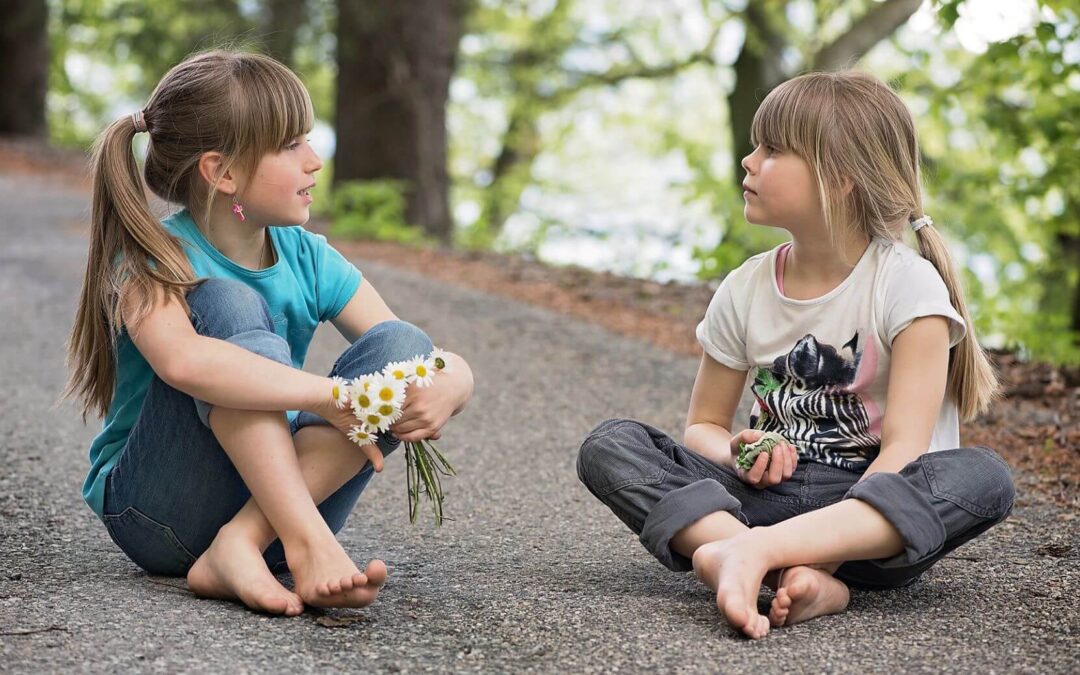Proper social skills are so important for getting along with others, developing good relationships, doing well in school or on the job and being viewed positively by other people in your community. Yet, social skills are one of the most difficult challenges for most of our kids who have autism and ADHD. I know this has been one of the hardest struggles for our son J over the years, and now that he is a teenager, social skills are even more essential for him to master. So how do you teach social skills to your child? Read on for six tips to help you.
Tip #1: Identify the social skills your child most needs to learn or improve
Each child will have different social skills they need to learn or improve. As parents, we can observe those in our home. You also should talk to your child’s teacher(s) and special services team at school to identify the skills they identify that your child needs to improve. Many times, social skills training is part of your child’s services at school either through speech therapy or other activities in their individualized education plan. They observe your child at school and can see how they are interacting with their classmates.
J received social skills training through speech therapy all through elementary school. In addition, we worked on social skills with his cognitive behavior therapist, and she trained us as parents to work with him at home.
Tip #2: Model social skills for your child
One of the best ways to teach effective social skills is to model them yourself. For example, if you want your child to say thank you when someone does something nice for them, then you should model that by showing them that you thank others. Then you can talk them through what you did, why and how it made the other person feel.
It’s important to talk to them about expected and unexpected behaviors, so they can better understand how people are anticipating them to behave in certain situations. It’s also helpful for them to understand how people may be uncomfortable or confused if they behave unexpectedly.
Children learn by watching others, especially their parents and other adults close to them. It’s a big responsibility, and I know it’s hard to be aware of what you are teaching when it comes to interacting with others socially. I know I’ve had times when I didn’t respond or do something the way I should have (that is, in the “expected” way), so I’ve had to explain to J about why I approached a situation in a certain way and how I could have done it differently. We are all human, and none of us are perfect. All we can do is our best and help our kids learn.
Tip #3: Look for tools to help you teach your child

Thankfully, there are many tools available to parents to help us teach our kids. I found the book Social Stories by Carol Gray (affiliate link) to be a big help. I had the book when J was younger, and it was so helpful to find a scenario and use it to help him learn social skills. His special education teacher at school also had some apps, worksheets and other tools that she used with J to help him with conversation starters, understanding emotions and more.
My Asperger’s Child website has several videos with social stories available to use with your child. The Common Sense Education site lists several social skills apps for children by age group.
Tip #4: Make it fun through games
Learning social skills through games can be a fun way to teach your child. Simple games such as bean bag toss, Uno® and board games can help your child learn how to take turns and interact with others in an entertaining way.
Using a conversation ball can be a fun way to help them learn how to answer questions they are asked by others. You also could pay charades and use emotion cards (like happy, angry, annoyed, sad, excited, etc.) that your child and the other participants can act out during the game. Another idea is to use puppets to teach your child social skills.
Tip #5: Role play and practice
Another effective way to teach social skills is through role play with your child. Write down several social situations on slips of paper and put them in a jar or basket. Then each day, your child can choose one, and you can practice that situation by you playing the role of a friend, classmate, teacher or other person with your child. As your child improves certain skills or you identify other skills that need to improve, you can switch out the slips of paper.
If your child isn’t comfortable with acting out the role play, you also could talk through different scenarios for social situations and come up with strategies for how your child would behave and what they would say in certain situations.
Tip #6: Look for social skills group opportunities for your child

Social skills groups are incredibly helpful for teaching your child social skills while in a small group of their peers. J participated in one when he was in elementary school, and he is still friends with one of the boys in his group many years later. Social skilsl groups are usually moderated by a behavior therapist who can work with the group collectively.
To learn more about social skills training and other resources available, check out my Resources page for organizations that provide this information. Our journey through autism and ADHD is difficult, but we need to celebrate the victories our kids have when they learn new skills!
Do you have more tips or tools for teaching social skills to your child? Share them in the comments below!









